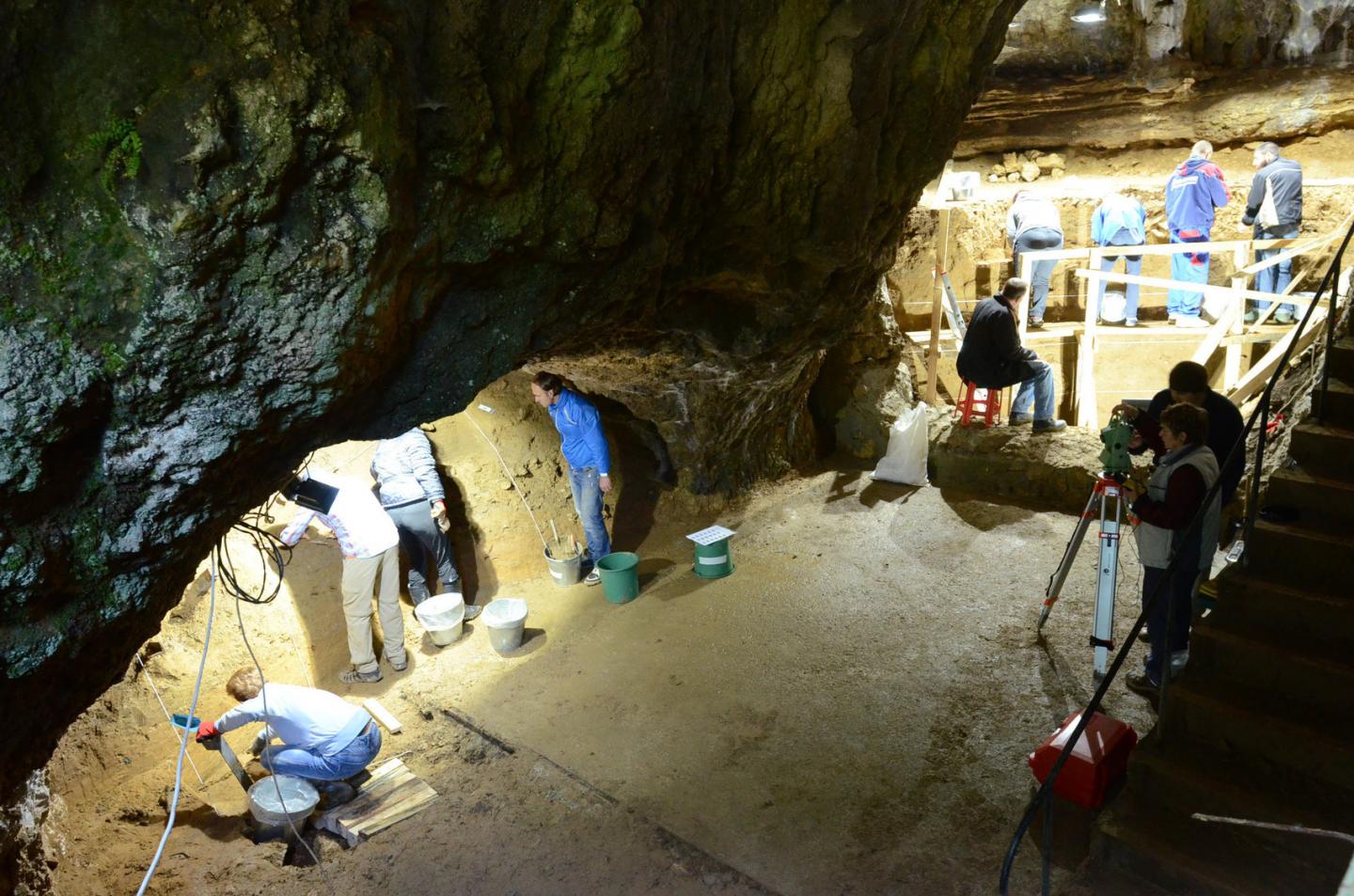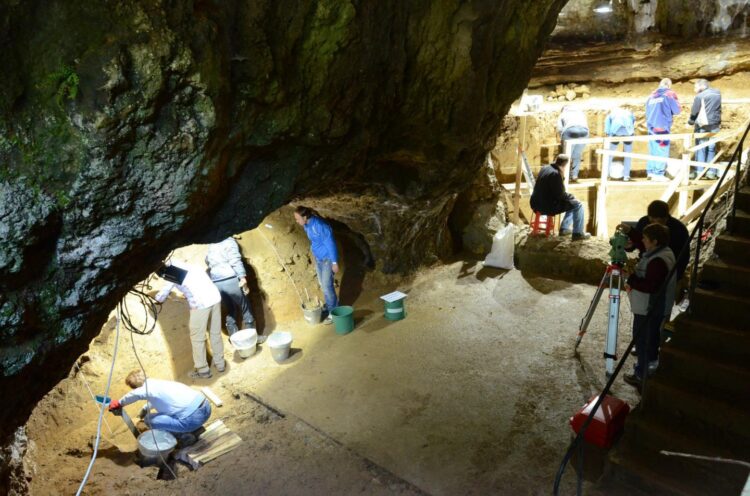Ancient genomes shed new light on the earliest Europeans and their relationships with Neandertals

Credit: MPI-EVA/ Nikolay Zaheriev
An international research team has sequenced the genomes of the oldest securely dated modern humans in Europe who lived around 45,000 years ago in Bacho Kiro Cave, Bulgaria. By comparing their genomes to the genomes of people who lived later in Europe and in Asia the researchers from the Max Planck Institute for Evolutionary Anthropology in Leipzig, Germany, show that this early human group in Europe contributed genes to later people, particularly present-day East Asians. The researchers also identified large stretches of Neandertal DNA in the genomes of the Bacho Kiro Cave people, showing that they had Neandertal ancestors about five to seven generations back in their family histories. This suggests that mixture with Neandertals was the rule rather than the exception when the first modern humans arrived in Europe.
Last year, a research team led by researchers from the National Institute of Archaeology with Museum at the Bulgarian Academy of Sciences and the Max Planck Institute for Evolutionary Anthropology, Germany, reported the discovery of modern human remains found in direct association with the Initial Upper Palaeolithic stone tools at the site of Bacho Kiro Cave in Bulgaria. The oldest individuals found in the cave were directly radiocarbon dated to between 43,000 and 46,000 years ago. They are thus the earliest known dispersal of modern humans across the mid-latitudes of Eurasia.
Mateja Hajdinjak and colleagues have now sequenced the genomes of five individuals found at the Bacho Kiro Cave. Four individuals are between 43,000 to 46,000-years-old and were found together with stone tools belonging to the Initial Upper Palaeolithic, the earliest culture associated with modern humans in Eurasia. An additional individual found in the cave is around 35,000-years-old and found with stone tools of a later type. It was previously thought that bearers of the Initial Upper Palaeolithic died out without contributing genetically to modern humans arriving later. However, the researchers now show that the oldest Bacho Kiro Cave individuals, or groups closely related to them, contributed genes to present-day people. Surprisingly, this contribution is found particularly in East Asia and the Americas rather than in Europe where the Bacho Kiro Cave people lived. These genetic links to Asia mirror the links seen between the Initial Upper Palaeolithic stone tools and personal ornaments found in Bacho Kiro Cave and tools and ancient jewelry found across Eurasia to Mongolia.
Genetic differences between individuals
Importantly, the later 35,000-year-old individual found in Bacho Kiro Cave belonged to a group that was genetically distinct from the earlier inhabitants of the cave. This shows that the earliest history of modern humans in Europe may have been tumultuous and involved population replacements.
The earliest people at Bacho Kiro Cave lived at a time when Neandertals were still around. The researchers therefore scanned their genomes for fragments of Neandertal DNA. “We found that the Bacho Kiro Cave individuals had higher levels of Neandertal ancestry than nearly all other early humans, with the exception of a 40,000-year-old individual from Romania. Crucially, most of this Neandertal DNA comes in extremely long stretches. This shows that these individuals had Neandertal ancestors some five to seven generations back in their family trees” says Mateja Hajdinjak.
Although only a handful of genomes from modern humans who lived at the same time in Eurasia as some of the last Neandertals have been recovered, nearly all of them have recent Neandertal ancestors. “The results suggest that the first modern humans that arrived in Eurasia mixed frequently with Neandertals. They may even have become absorbed into resident Neandertal populations. Only later on did larger modern human groups arrive and replace the Neandertals” says Svante Pääbo, who coordinated the genetic research.
###
Original publication
Mateja Hajdinjak, Fabrizio Mafessoni, Laurits Skov, Benjamin Vernot, Alexander Hübner, Qiaomei Fu, Elena Essel, Sarah Nagel, Birgit Nickel, Julia Richter, Oana Teodora Moldovan, Silviu Constantin, Elena Endarova, Nikolay Zahariev, Rosen Spasov, Frido Welker, Geoff M. Smith, Virginie Sinet-Mathiot, Lindsey Paskulin, Helen Fewlass, Sahra Talamo, ?eljko Rezek, Svoboda Sirakova, Nikolay Sirakov, Shannon P. McPherron, Tsenka Tsanova, Jean-Jacques Hublin, Benjamin M. Peter, Matthias Meyer, Pontus Skoglund, Janet Kelso and Svante Pääbo
Initial Upper Palaeolithic humans in Europe had recent Neanderthal ancestry.
Nature; 7 April, 2021
Media Contact
Dr. Mateja Hajdinjak
[email protected]
Original Source
https:/
Related Journal Article
http://dx.





